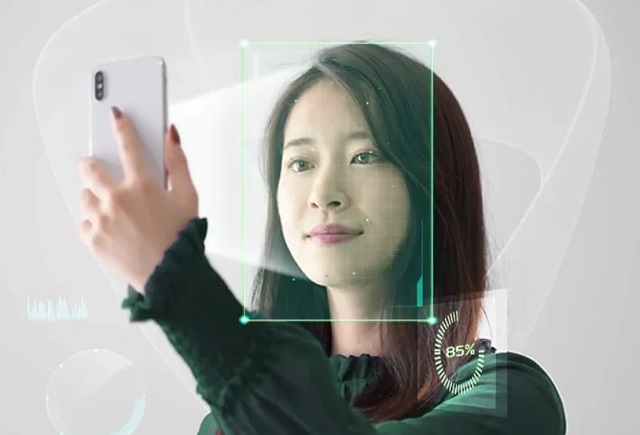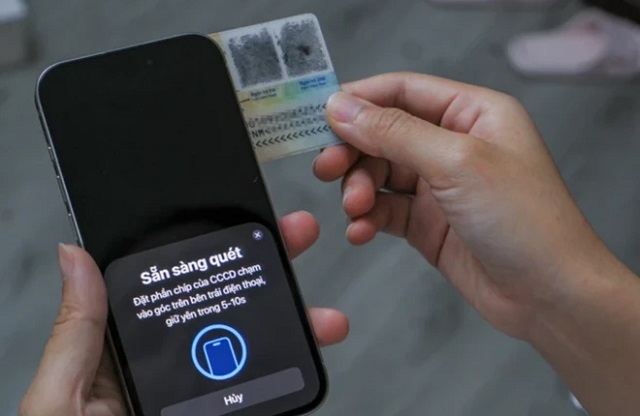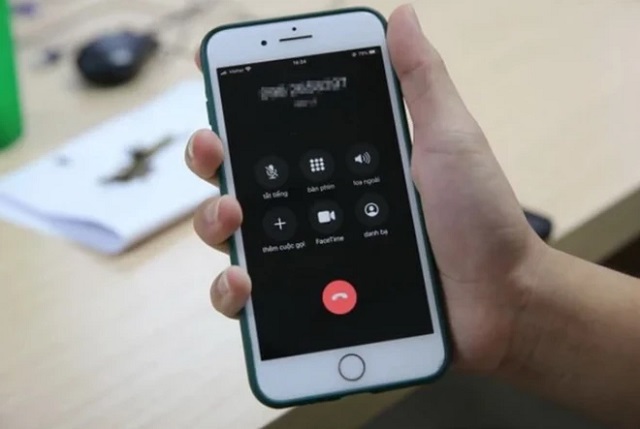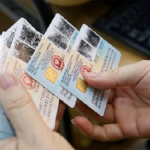
4 Compelling Reasons to Visit Your Bank Branch
|
Starting today (July 1st), transactions involving amounts of 10 million VND per transaction or 20 million VND per day will require biometric authentication. This new regulation aims to minimize losses from fraudulent money transfers.
Here are the 4 scenarios where a trip to your bank is necessary:
Decision 2345/QD-NHNN (Decision 2345), which focuses on implementing safety and security measures for online and card payments, has come into effect as of July 1st.
According to this decision, customer transactions, especially those involving large amounts of 10 million VND per transaction and 20 million VND per day, mandate biometric authentication. Additionally, customers depositing over 10 million VND into e-wallets or conducting cross-border interbank transactions must provide verified biometric data.
Interestingly, per Decision 2345, the biometric data collected by banks must match the data stored in the chip of the citizen’s ID card issued by the police or be authenticated by the electronic identification account (VNeID) created by the electronic identification system. Alternatively, it should correspond to the biometric data stored in the database of the service provider, which has been checked and verified against the chip-enabled ID card or VNeID.
From July 1st, 2024, customers must visit a bank branch to transfer money in the following situations:
First, customers who only possess the old ID card or citizen identification card, which does not include a chip.
Second, customers who are unable to update their biometric data on the banking app due to technical issues and have been verified as such.
Third, customers who have successfully authenticated their biometric data on the banking app but, after July 1st, find that their facial biometric data does not match the data in the chip-enabled ID card when performing transactions like money transfers, e-wallet top-ups, interbank transfers, or other high-value transactions.
Fourth, in the event of transaction congestion during the initial days of Decision 2345’s enforcement, customers with large-value transactions may also need to visit a branch.
The State Bank of Vietnam has clarified that customers without a chip-enabled ID card or those using a phone that does not support NFC need only register their biometric data at the bank branch once. After that, they can perform transactions over 10 million VND through Mobile Banking or Internet Banking without visiting the branch.
Banks have advised that customers who have not updated their biometric data by July 1st should continue to visit bank branches for assistance with transactions exceeding 10 million VND per transaction or a total transaction value of 20 million VND per day.

Illustrative image
|
Vietcombank, the Foreign Trade Bank of Vietnam, has introduced an online biometric data update feature through the App-to-App connection between its VCB Digibank app and the VNeID app. Customers simply need to log in to VCB Digibank, select “Electronic Identification Account (VNeID),” and follow the on-screen instructions.
To use this feature, customers must have a level 2 VNeID account and update to the latest version of VCB Digibank. Vietcombank is the first bank to utilize the electronic identification and authentication system through a direct connection between its app and VNeID.
Biometric authentication is a powerful tool to combat fraud.
Mr. Nguyen Van Huong, Deputy General Director of Orient Commercial Bank (OCB), shared his insights on the implementation of biometric authentication starting July 1st: “With this measure in place, criminal organizations will find it extremely challenging, if not impossible, to impersonate customers. Any transaction involving a substantial amount will require the customer’s biometric data for authentication.”
In 2023, nearly 16,000 cases of online fraud were reported, resulting in losses of nearly 10,000 billion VND. Once victims transferred money to the scammers, the funds were quickly moved between multiple bank accounts, making it difficult to trace. With biometric authentication, this fraudulent money trail can be stopped in its tracks.

Using biometrics to prevent fraud
|
Lieutenant Colonel Trieu Manh Hung, Deputy Director of the Cyber Security and High-Tech Crime Prevention Department, Ministry of Public Security, emphasized the importance of biometrics: “Without the biometric data of the account holder, the account cannot be used for money transfers. This will reduce the use of accounts that do not belong to the account holder. By implementing this measure for transactions, we can prevent fraudsters from purchasing and using other people’s bank accounts to launder stolen funds.”
Associate Professor and Doctor Nguyen Huu Huan, a lecturer at the University of Economics Ho Chi Minh City (UEH), acknowledged the benefits and security that Decision 2345 brings. As technology advances, new forms of fraud emerge, and applying technology in the payment field is a way to minimize and prevent these scams as early as possible, although not entirely eliminating them.
However, Dr. Huan noted that biometric authentication can only reduce losses to a certain extent in cases of fraud involving the compromise of bank account control. With this regulation in place, the use of biometrics can help limit losses for account holders to a maximum of 20 million VND per day when criminals gain control of their account and obtain the OTP code.
Additionally, Dr. Huan pointed out that with sophisticated AI and deepfake technology, criminals might still find ways to bypass biometric security measures by forging human biometric data. Furthermore, with the prevalence of social media, personal information and images of individuals are often exposed, making it challenging to prevent fraud even with advanced biometric technology.
Thuy Ha
Prime Minister issues plan for implementing Citizen Identity Law
Prime Minister Pham Minh Chinh has just signed a decision to issue a Plan for the implementation of the Identity Card Law, which was passed by the National Assembly on November 27, 2023 and will come into effect from July 1, 2024.
Get Help from Facebook ‘Lawyer’ to Recover Scammed Money, Hanoi Woman Gets Duped for Even More Money
According to the Hanoi Police, there have been fake accounts on the social media platform Facebook impersonating lawyers and posting articles about supporting the recovery of scam money. Instead of reporting the incident to the authorities, many victims of scams have contacted these fake lawyer accounts in hopes of recovering their lost funds.
Beware of Fake E-commerce Websites Scam
Recently, another victim fell prey to a scam, losing over 3 billion Vietnamese dong while working as a freelancer for a fraudulent website impersonating the popular e-commerce platform, Amazon.




















